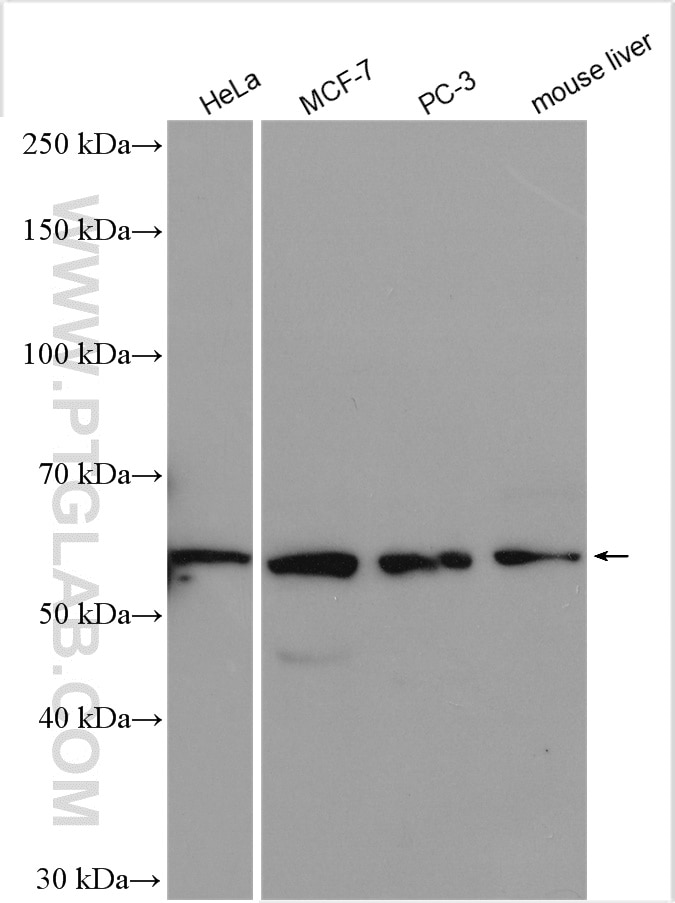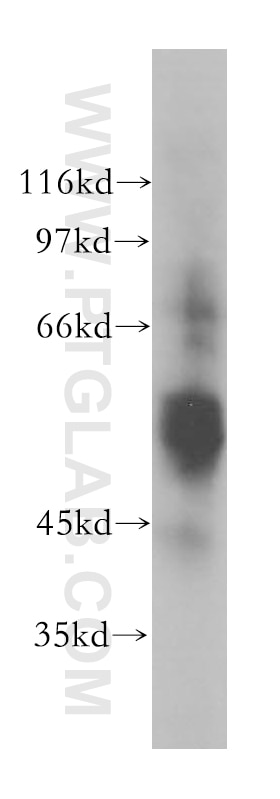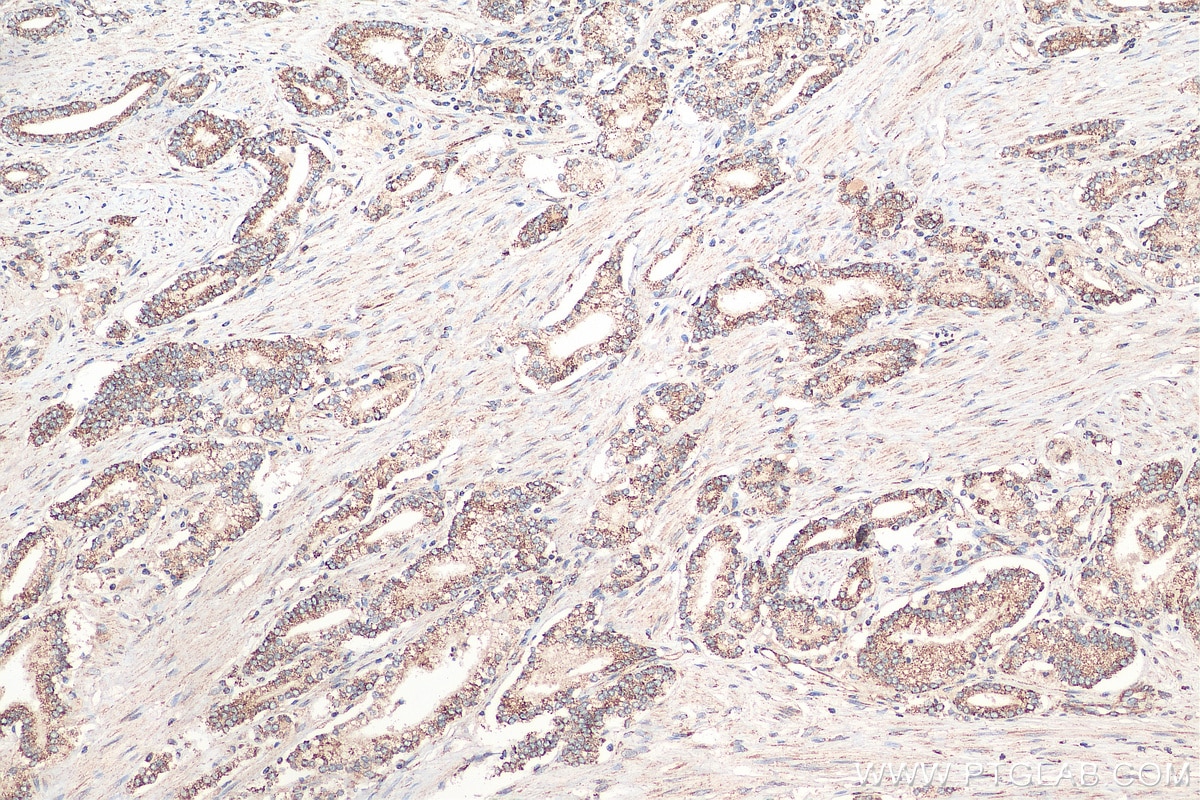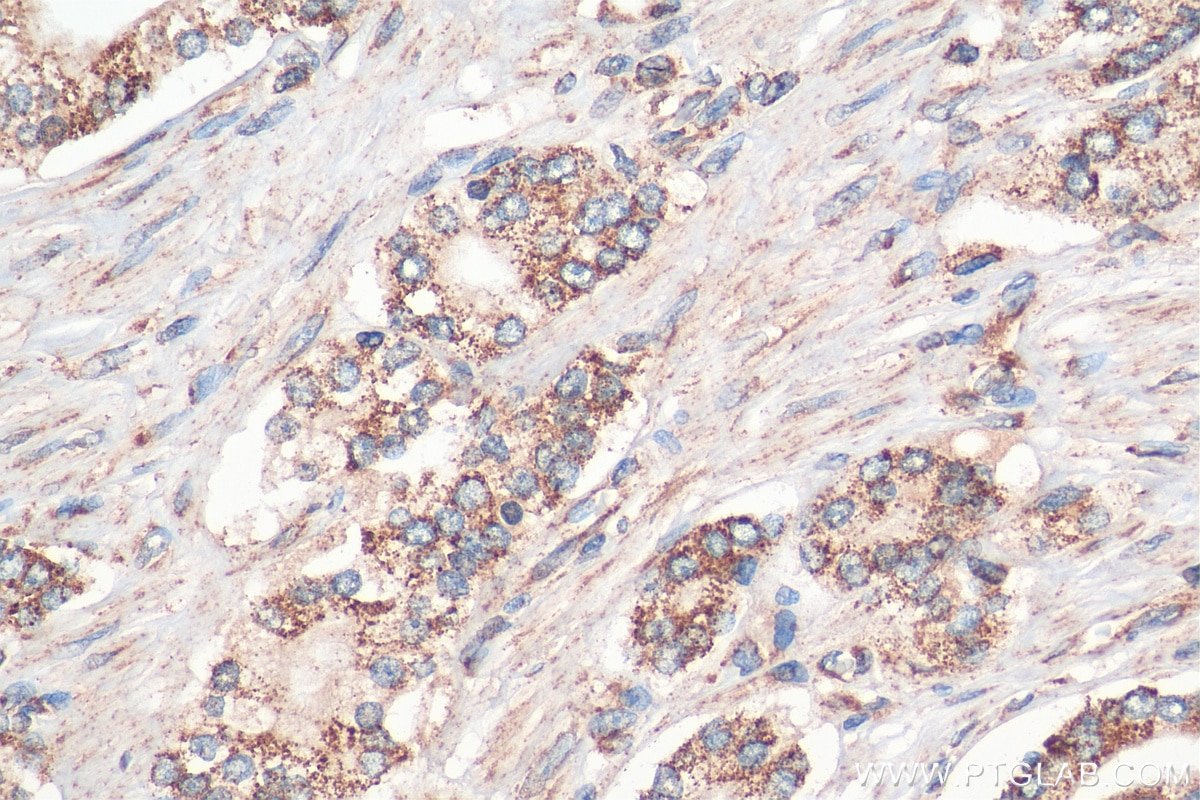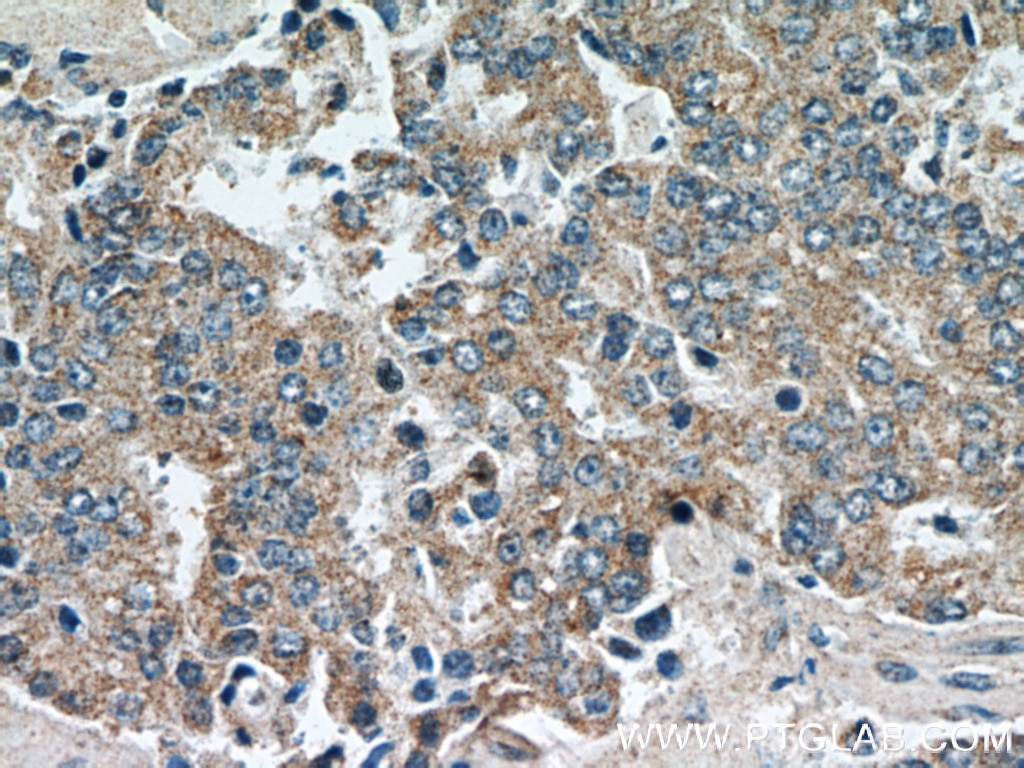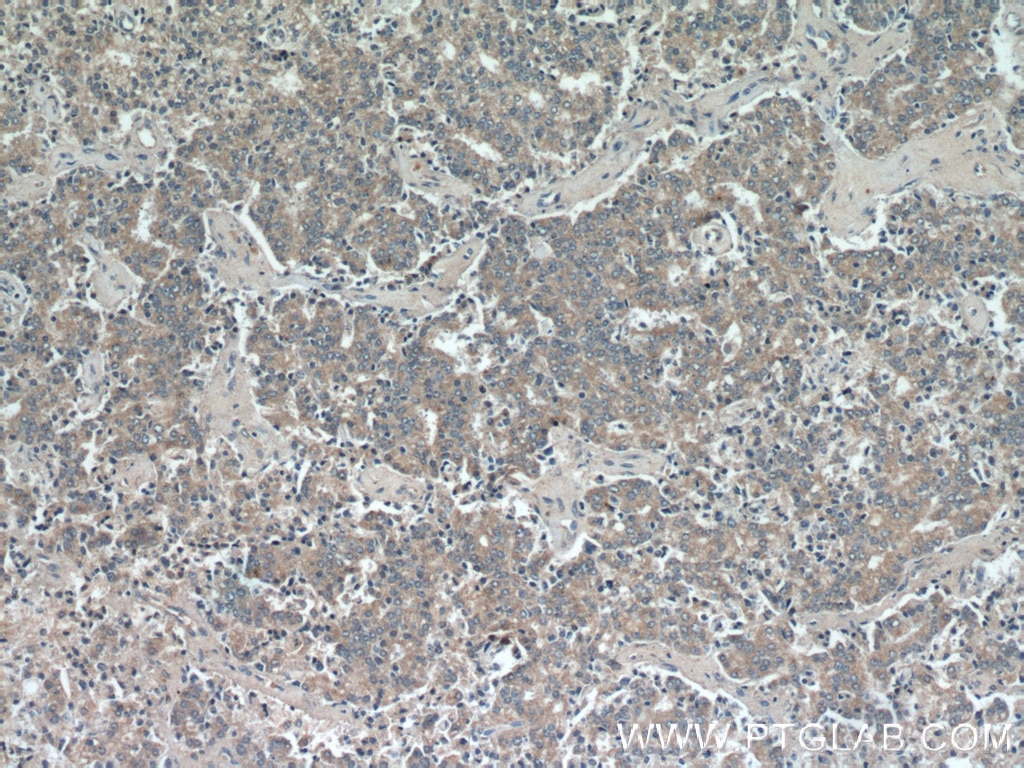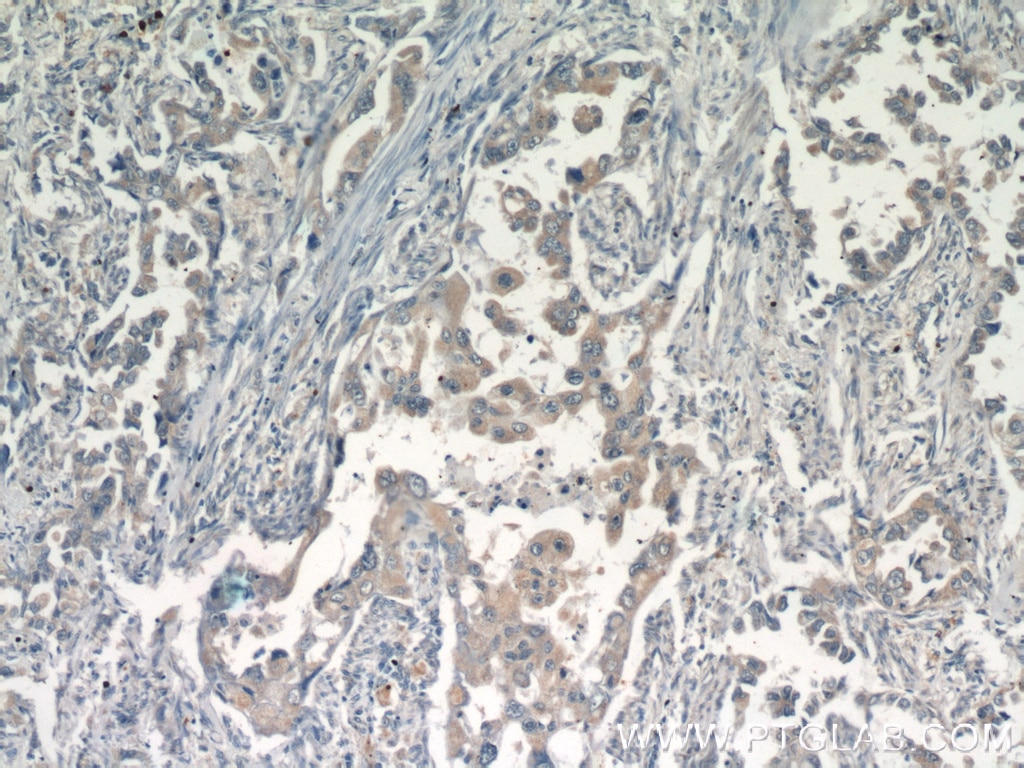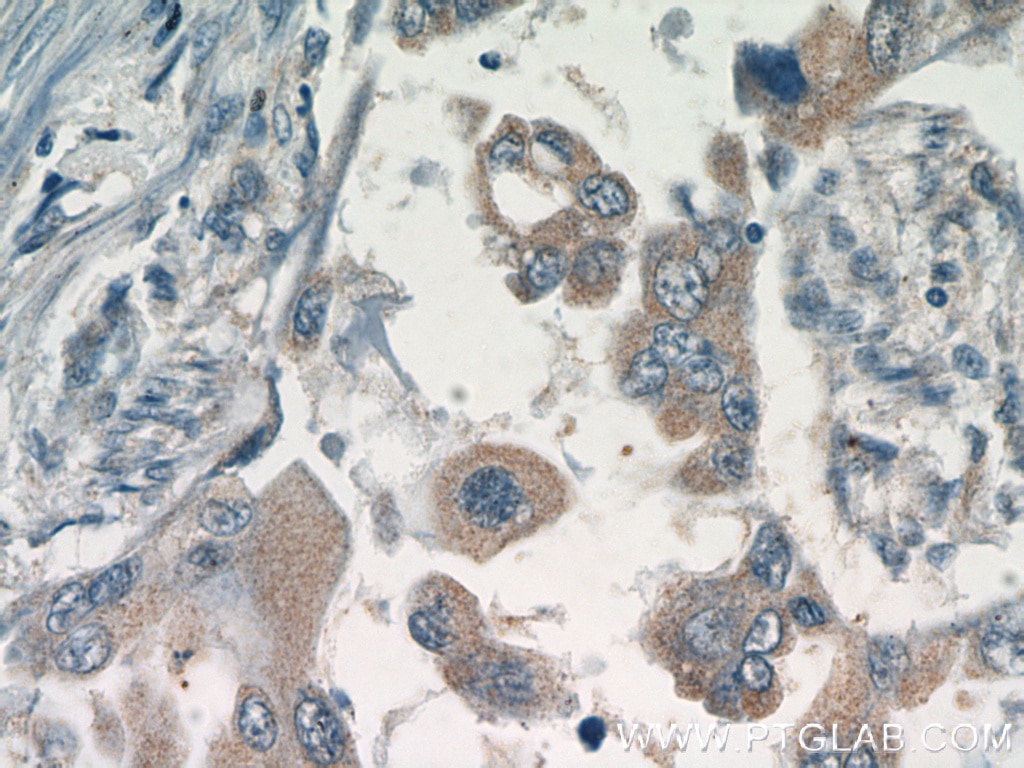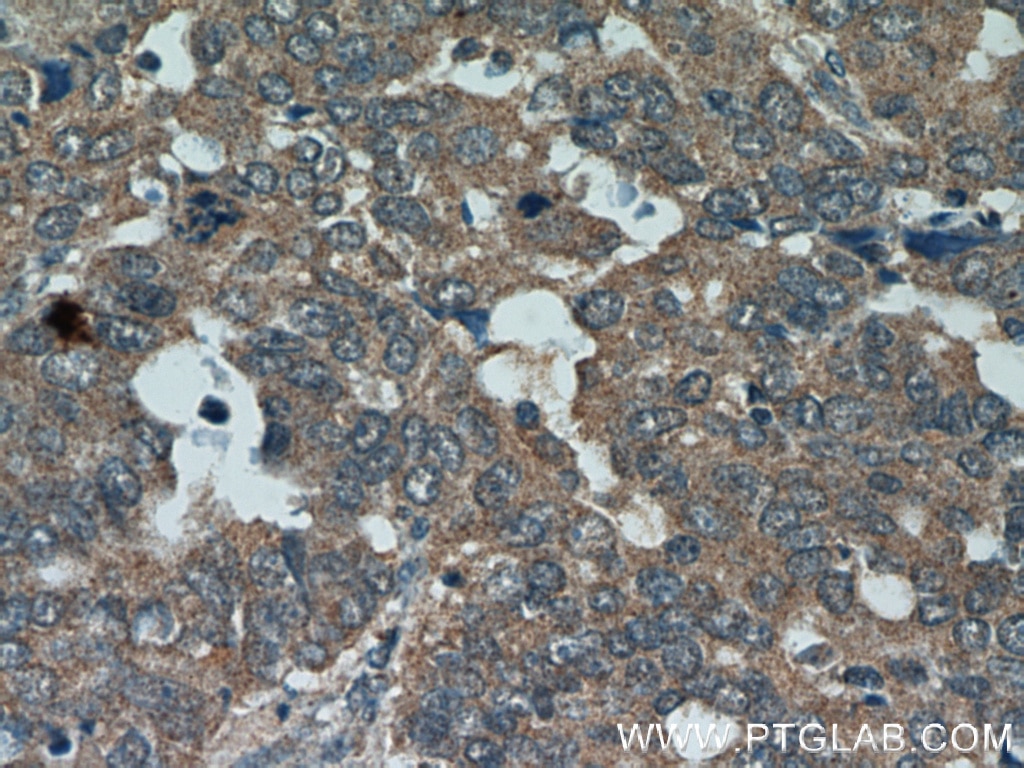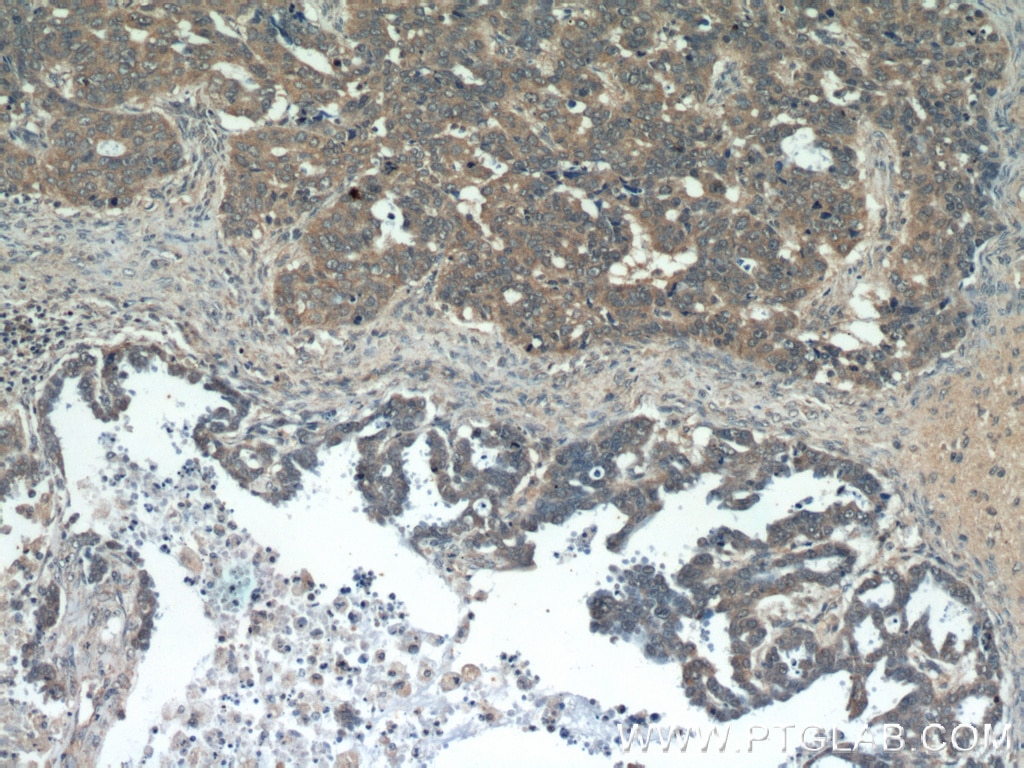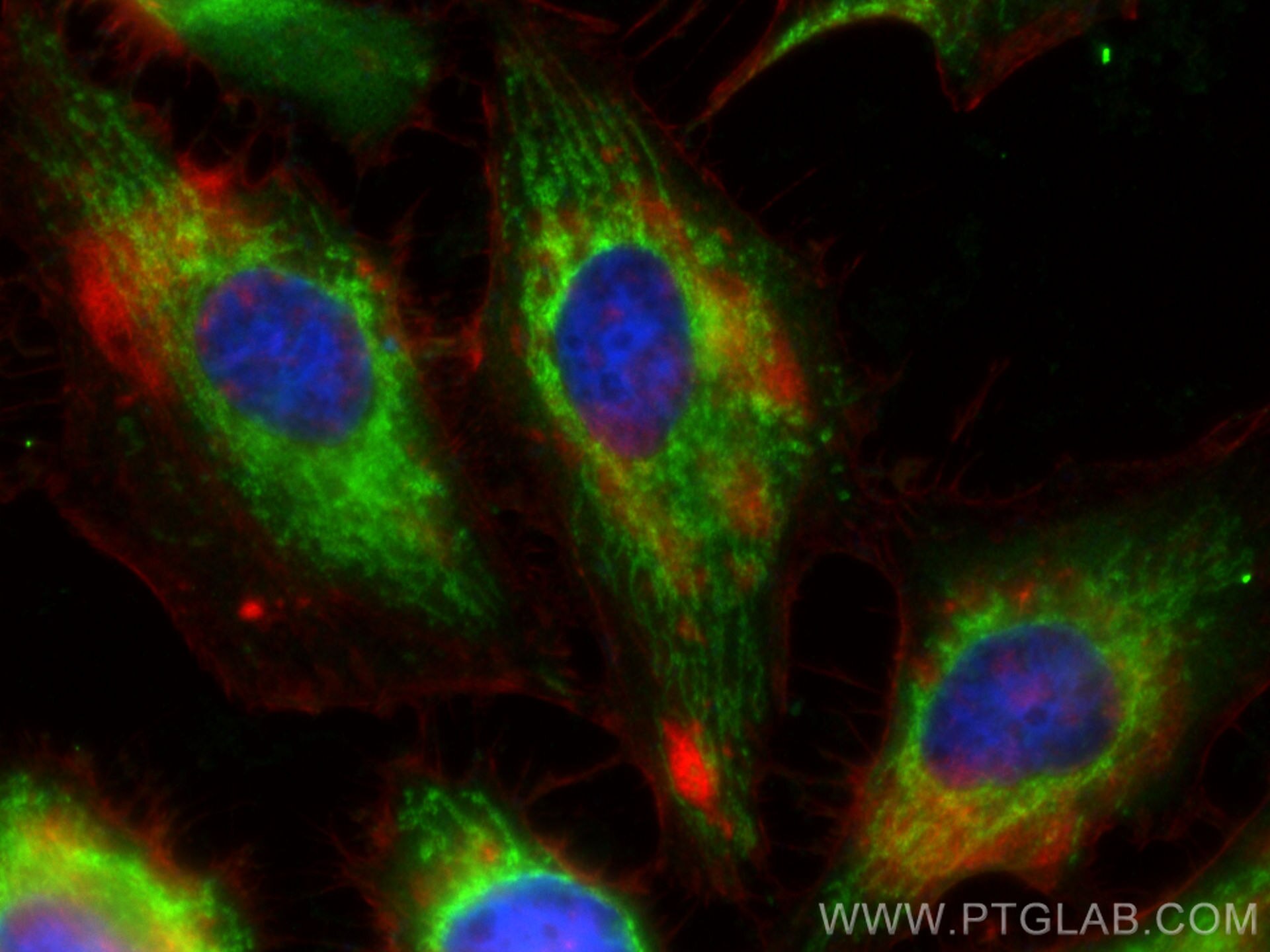Product Information
13419-1-PBS targets GSK3A in WB, IHC, IF/ICC, Indirect ELISA applications and shows reactivity with human, mouse, rat samples.
| Tested Reactivity | human, mouse, rat |
| Host / Isotype | Rabbit / IgG |
| Class | Polyclonal |
| Type | Antibody |
| Immunogen | GSK3A fusion protein Ag4168 Predict reactive species |
| Full Name | glycogen synthase kinase 3 alpha |
| Calculated Molecular Weight | 483 aa, 51 kDa |
| Observed Molecular Weight | 51 kDa |
| GenBank Accession Number | BC027984 |
| Gene Symbol | GSK3A |
| Gene ID (NCBI) | 2931 |
| RRID | AB_2247995 |
| Conjugate | Unconjugated |
| Form | Liquid |
| Purification Method | Antigen affinity purification |
| UNIPROT ID | P49840 |
| Storage Buffer | PBS only, pH 7.3. |
| Storage Conditions | Store at -80°C. |
Background Information
Glycogen synthase kinase-3 alpha (GSKA) is one of the two functional isoforms encoded by the GSK gene and
acts as a tumor suppressor through its kinase function, targeting many different proteins.
What is the molecular weight of GSKA?
51 kDa. GSKA is a protein serine kinase composed of 483 amino acids and the catalytic domain shares a high
degree of homology with GSKB, although they are encoded on separate genes.
What is the function of GSKA?
Constitutively expressed across all tissues, GSKA has a large number of target proteins and is therefore involved
in many different pathways (PMID: 19923896). It was first identified as a regulator of glycogen metabolism, as
GSK3A phosphorylates the enzyme glycogen synthase, thereby inhibiting glycogenesis, the conversion of glucose
into glycogen (PMID: 6249596). It has since been shown to interact with many other proteins and is one of the
kinases with most substrates in the cell, with roles in cell cycle progression, proliferation, differentiation, and
apoptosis (PMID: 17570479; PMID: 11563964). Typically, GSKA negatively regulates its downstream substrates,
often tagging proteins for ubiquitination. It has important roles in the Wnt and PI3K signaling pathways.
What is the role of GSK3A in neurodegenerative disease?
GSK3A is known to interact with beta-amyloid and tau, proteins that aggregate in areas of the neuronal system
as part of the pathology of neurodegenerative diseases such as Alzheimer's disease. It has been shown that
GSK3A causes abnormal phosphorylation of the microtubule-binding protein tau in a way that reflects the
pathology of Alzheimer's disease (PMID: 1334849; PMID: 1336152). GSKA has also been shown to process
amyloid precursor protein to beta-amyloid, another protein that forms the inclusion bodies, or Lewy bodies,
that are one of the hallmarks in Alzheimer's (PMID: 1276154). Another protein involved in the pathology of
Alzheimer's is α-synuclein, which is known to be a substrate for GSK-3β phosphorylation (PMID: 24681994).

